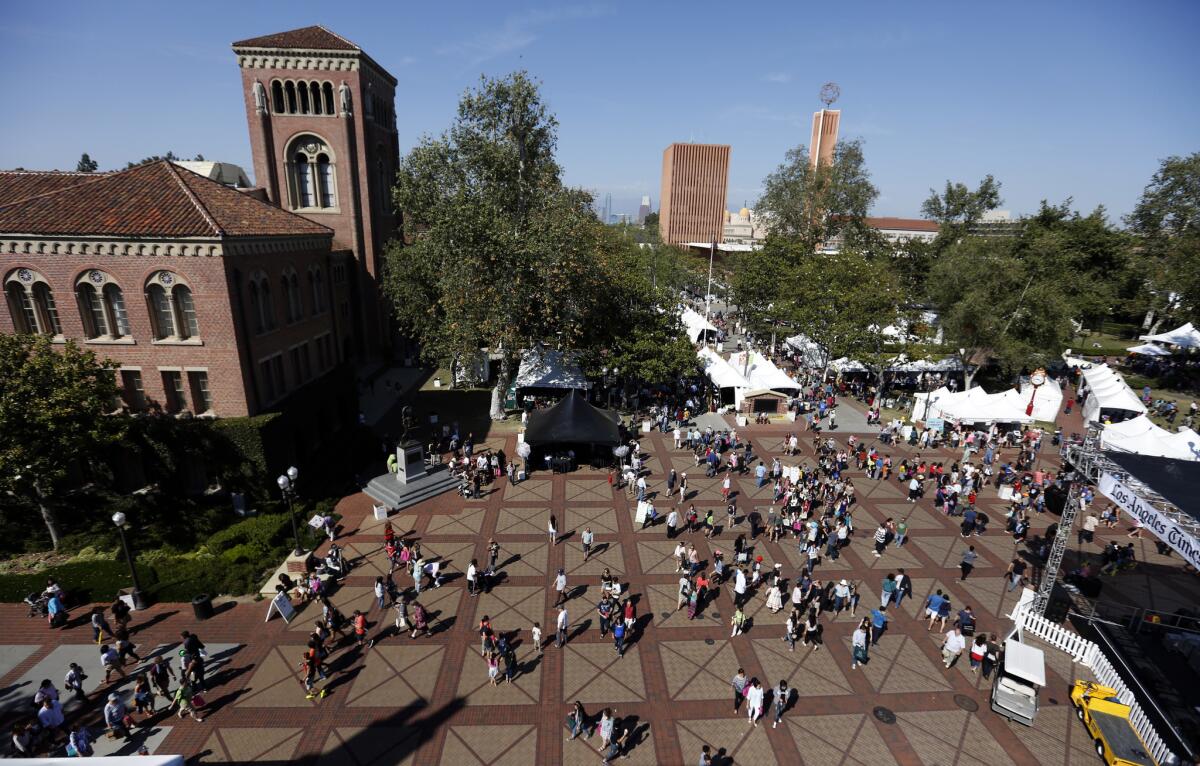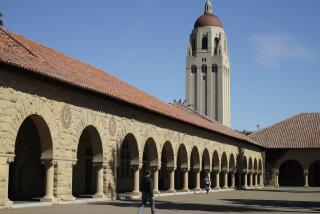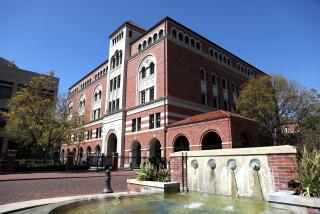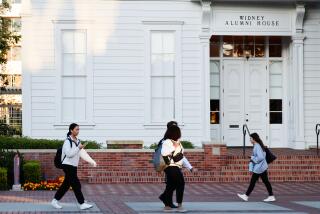UC San Diego wins legal battle in dispute with USC over Alzheimer’s project

USC lost a major legal battle Friday against UC San Diego when a judge ruled that control of a landmark project on
UC San Diego won a major legal battle Friday against USC when a judge ruled that control of a landmark project on Alzheimer’s disease belongs to the La Jolla school.
The decision addressed the heart of a lawsuit that has gained international attention since UC San Diego filed it early this month, largely because it’s rare for such disagreements in the academic world to reach the courtroom.
The dispute pits UC San Diego, a research powerhouse, against USC, a well-heeled institution seeking to bolster its biomedical research efforts and extend its reach to San Diego.
“We never wanted to resort to legal action, but when all reasonable requests to return what is the rightful property of UC San Diego were ignored, there was no alternative,” Dr. David Brenner, vice chancellor for health sciences, said in a statement. “We are pleased with today’s decision and believe it indicates the strength of our overall case.”
Left unresolved Friday was UC San Diego’s request for monetary damages based on its accusations that USC, Dr. Paul Aisen and other defendants conspired to illegally transfer the Alzheimer’s Disease Cooperative Study to the Los Angeles-based university. Aisen resigned in June from UC San Diego, where he had overseen the study since 2007, to become founding director of an Alzheimer’s institute that USC was establishing in the Sorrento Valley neighborhood.
In recent weeks, the two sides have argued about who owns the database for the $100-million nationwide project
UC San Diego, which has overseen the study for nearly a quarter of a century, said it still retains the government funding — an assertion backed by the National Institutes of Health.
Aisen and USC officials have countered that it’s academic tradition for departing faculty members to transfer their research to their new employer. They presented supporting statements from several researchers taking part in the Alzheimer’s project.
After Friday’s hearing, USC attorney Glenn Dassoff told journalists that USC and Aisen’s interest in the study “is real, genuine, and unfortunately was not addressed today. This is not over.”
In an email Friday night, Aisen wrote: “We all lose here. Science and public health lose when research is torn from the investigators with the passion, knowledge and skill to assure its success.”
In the courtroom, San Diego Superior Court Judge Judith Hayes said she would issue a preliminary injunction early next week that will require USC to surrender custody of the Alzheimer’s project.
She told USC not to manipulate data from the study or make any other changes to the database, which involves details of lab research clinical trials from dozens of sites across the country.
As the next step, the two universities and their lawyers will negotiate the choice of a “special master” to supervise the process of USC restoring full control of the database to UC San Diego. This phase will involve an independent expert on bioinformatics who can determine whether information in the database has been tampered with.
Dan Sharp, an attorney representing UC San Diego on behalf of the University of California Board of Regents, said USC would start returning the data next week.
“How long it takes will depend on what we find in terms of what they’ve done with the [computer] system, changes they may have made,” he said.
Dassoff, the USC attorney, said that although his party disagrees with Hayes’ findings, “we’ll reflect on the decision and I’m sure that [we’ll] approach any settlement discussions in good faith.”
During the hearing, Hayes offered to refer the opposing sides to a settlement judge, with the aim of negotiating an end to the lawsuit instead of proceeding to a jury trial.
NEWSLETTER: Get the day’s top headlines from Times Editor Davan Maharaj >>
UC San Diego alleges that Aisen, USC and as many as two dozen other defendants colluded to commit a range of violations, including contract interference, breach of duty of loyalty by an employee, commission of computer crimes, and civil conspiracy.
Brenner, UC San Diego Chancellor Pradeep Khosla and others at the university have said the defendants have harmed their school’s reputation. Aisen and his new employer have denied any wrongdoing.
In the last year, USC has reached out to at least three life-science institutions in San Diego to explore a purchase, merger or other types of collaboration. None of those inquiries has resulted in a partnership.
During an interview this month, USC Provost Michael Quick said his university’s envisioned footprint in San Diego could include free-standing institutes, academic consortia and joint ventures with targeted companies.
“The 20th century was dominated by physics. The 21st will be dominated by biomedical sciences,” Quick said. “We have to be at places where the conversations [in life sciences] are the best, and San Diego is one of those places.”
ALSO
Study outlines congestion, air pollution improvements for Bob Hope Airport
Judge orders release of immigrant children, mothers from detention centers
Nearly 9 in 10 students drop out of unaccredited law schools in California, data show
More to Read
Start your day right
Sign up for Essential California for news, features and recommendations from the L.A. Times and beyond in your inbox six days a week.
You may occasionally receive promotional content from the Los Angeles Times.






